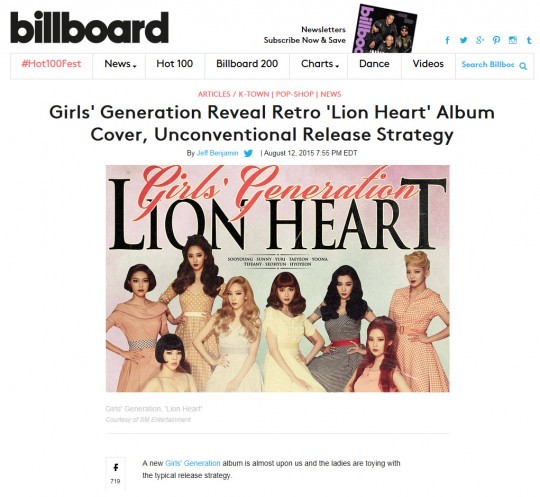그는 K팝 가수들이 화려한 퍼포먼스와 현란한 사운드로 해외 대중의 이목을 끄는 일에는 어느 정도 성공했지만, 이를 넘어서 세계적인 스타로서 발돋움하기 위해서는 형식적인 멘트와 정형화된 방송용 이미지로부터 벗어나 솔직하고 개성 넘치는 아티스트의 모습으로 팬들에게 다가가야 한다고 지적했다.
그는 “(매체와의 인터뷰에서) K팝 가수들이 형식적이고 정형화된 답변을 하는 것을 목격한 적이 많다. 그럴 때에는 해외 팬들이 매우 답답해한다. 흥미로운 인터뷰가 나오지 않을 경우 해외 매체들은 한국 가수들을 다시 찾지 않게 된다”고 말했다.
그는 “해외 팬들은 한류 스타들을 사람 대 사람으로서 궁금해한다. 해외 매체들에서 인간적인 면모를 끌어내려고 하는데도 스타들이 그렇게 할 수 없는 경우가 많다”며 “현재 K팝 스타들이 해외 대중과 소통할 수 있는 가능성이 그 어느 때보다 크다. 이를 잘 활용하여 앞으로 스스로의 개성을 더욱 표현하면 더 인기를 끌 수 있을 것”이라고 전했다.
[관련 영문 기사]
How K-pop keeps up with international fansNew forms and routes of global communication between stars and fans are surfacing
With K-pop now having risen as an international phenomenon, communication between the stars and their fans -- who are multilingual, multiethnic and span across the continents -- has emerged as a significant issue.
Though some celebrities already engage in extensive social media activities, it seems photos, text and manufactured videos are not quite enough to satisfy international fans’ thirst for a more personal, immersive connection, according to Chloe Choi, a spokesperson for Korean Internet giant Naver, which has heavily invested in K-pop coverage.
In response to this demand, new forms of global star-to-fan communication are budding.
The rise of video platforms In response to the increasing demand from fans and general social media consumers for a more realistic level of online engagement, 2015 has seen the rise of new platforms such as Periscope and Meerkat, where users can live stream video.
Naver recently jumped on the live-streaming bandwagon with its new mobile app V, which allows K-pop stars to broadcast snippets of their daily life and interact with fans in real time.
“Instant, fleeting bits of live communication have become more important than photos or text,” Naver’s Choi said.
“Simple, real-time video platforms like V allow fans a more intimate window into stars’ behind-the-scenes lives. They also let stars communicate with fans with minimal investment,” as videos posted on V generally require no additional equipment other than a mobile phone and no postproduction editing, said Choi.
The app seems to have delivered precisely to international fans’ heretofore unfulfilled demands. Since its July launch, V has seen up to 80,000 fans worldwide tuning in simultaneously during a single broadcast, with some videos receiving over 8 million “hearts” -- a feature which lets viewers show their support for the uploaded content -- and 10,000 comments, a large number of which have been written in English.
On the other side of the fence are K-pop stars who have begun harnessing conventional social media in new, creative ways of their own.
One K-pop idol branching out creatively is girl group f(x)’s Amber, who launched and is running the YouTube channel “What the Pineapple” in collaboration with her friend Scott. The channel features English-language videos of the two and their friends, and has nabbed over 80,000 subscribers since its first upload on July 10.
Amber, who edits all the videos herself, said in an Aug. 22 upload that she started the channel to “have fun” and show “the parts you can’t really see on TV,” revealing a desire to both express herself and connect directly with a larger group of fans.
Another content-creator idol is girl group Rainbow’s Jaekyung, who currently operates a blog with posts about her hobbies, which include interior design, cooking and beauty.
Adding personality to ‘prepackaged’ K-pop Many say that in K-pop, artists’ individual identities tend to get lost in a process driven by strict planning and mass production. Appealing to fans using personality and individuality, however, just might be that extra kick K-pop needs to spiral from a still “unrelatable” minority phenomenon to a more widespread genre, according to industry watchers.
“I think K-pop stars can definitely benefit from expressing themselves more, especially when considering the potential they have to connect with a bigger international audience is larger than ever,” Billboard magazine’s K-pop writer Jeff Benjamin told The Korea Herald via email.
The chaotic, colorful texture of K-pop music has grabbed the world’s attention, but now audiences are curious to learn about the human beings behind the glitz.
“When I’ve personally observed stars giving very safe and generic answers, it’s very frustrating for the international fans and the media outlets involved,” Benjamin said, adding that such rehearsed personas discourage global outlets from seeking the stars out a second time.
Maggie Huyen, a 26-year-old Taiwanese woman who works in education and has been an avid fan of K-pop since her middle school years, spoke of a similar frustration. K-pop stars, she said, have seemed to hide their true personalities behind the veil of an often forced public image or choreographed team performances.
“But fans want to get to know their stars better,” she said.
By Rumy Doo (
bigbird@heraldcorp.com)





![[Today’s K-pop] Blackpink’s Jennie, Lisa invited to Coachella as solo acts](http://res.heraldm.com/phpwas/restmb_idxmake.php?idx=644&simg=/content/image/2024/11/21/20241121050099_0.jpg)


